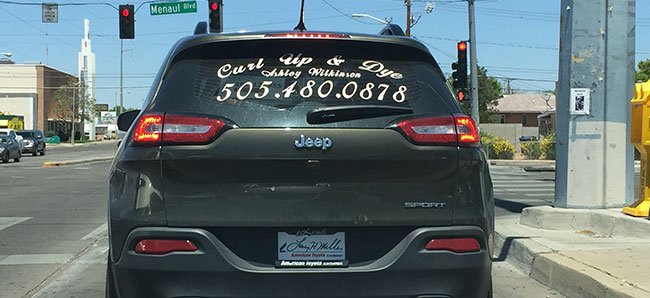Clever Business Names
Think you found the perfect name for your business? You are probably wrong.
Trademark registration is an important component of our business here at Law 4 Small Business. Unfortunately, many business leaders run into problems because they weren’t careful in how they chose the name for their company.
Let me be clear here: choosing the wrong name can lead to big problems, even resulting in closure or bankruptcy. For your long-term success, keep reading.
That’s right, a poorly named company can spell its doom.
We often write about trademarks and naming a company, including blog articles containing a general overview of trademarks and What do the R-symbol and the TM symbol mean?. (We also have many other trademark-related blog articles.) Many of these articles touch on the “strength of a mark,” which is absolutely critical in picking a name for your business. It goes without saying that you need to pick a name that’s unique.
Traps Befalling Business Leaders in Choosing a Name
Of all the possible naming pitfalls, these two stand out:
- Descriptive Names. Names that merely describe the business, such as “Carpet Clean,” “San Jose Eyeglass Shop,” or “Albuquerque Business Law”.
- Names Already Taken. Most business leaders don’t know how to conduct the proper research when selecting a name, and consequently end up choosing a name that is already taken by a similar business somewhere else.
These two pitfalls create critical problems to the long-term success and viability of a business.
Descriptive Naming Issues
There is a strong temptation for many business leaders to choose a name that describe their business. There are two problems with such a company name:
- First, you cannot protect or trademark the name. Other businesses are permitted to use such descriptive names to name or reference their business – and you cannot do anything about it!
- Second (and most importantly), is differentiation. Others will use the same or a similar name, which creates confusion when potential customers are searching for your specific business. If someone does look you up by name, there’s a strong chance they may find a competitor and not your specific business.
All of this spells trouble for a business in the long-term. If you cannot create uniqueness for your brand in the marketplace, advertising dollars are less effective. Overly descriptive names can actually make it harder for potential customers to find you.
Just think about that for a moment: If you spend thousands of dollars on a print ad, and your business is “Santa Fe Optical”. When customers attempt to find your business and type “Santa Fe Optical” in Google, your business along with all the competitors that use “Santa Fe Optical” to describe their business are shown to your potential customer. This is definitely not the best use of precious ad dollars.
Contrast this with a business whose name is truly unique, arbitrary or fanciful, such as “Greyhound Bus,” “Amazon” or “Kodak.”
Using Someone Else’s Name Can Spell Disaster
US trademark law is clear: one is not permitted to use the trademark of another competing business, whether it’s actually registered or not.
Three things matter, when considering trademark infringement:
- Likelihood of Confusion. Is there a “likelihood of confusion” when using someone else’s trademark or trade name? We’ll talk more about “likelihood of confusion” in another blog article, but for the purposes of this article, know that it’s a test on whether your use of the name can be confused with another.
- First Use in the Marketplace. In most circumstances (not all), whomever uses the trademark or trade name is afforded superior rights over others.
- Common Law. Most states in the US have common-law rights in the use of their trademark or trade name, even if such a trademark or trade name is not registered as an actual trademark. They can enforce their rights without registration, and they can register even if a new user of the same trademark or trade name is more pervasive than the original.
There are some rare exceptions to #2 and #3, above, but they are generally arcane and extremely expensive (and uncertain) to fall back on in a trademark dispute. Read our blog article on Avoiding Lawsuits and Liability.
Unfortunately, a simple search using the exact word mark of your company name, trademark or trade name is not enough to determine whether it’s available. If you do find someone else using the same or similar name you want to use for your business, you run a high risk of problems down the road, even if they haven’t bothered registering their name as a trademark.
Many business leaders simply focus on picking a name, without verifying the name is actually available.
In Conclusion
For businesses owners and leaders who pick unique and creative names to differentiate their businesses in the marketplace and create greater brand recognition — and verify such a name is available — avoid falling into the two traps I’ve identified above. Of course, picking the proper name is delicate process, where one can easily go overboard and create other problems. For example, in reference to the picture above in this blog article, “Curl Up & Dye” is creative and not descriptive, but it does appear to be in wide use throughout the United States.
If you need help picking the perfect business name, feel free to contact us.

